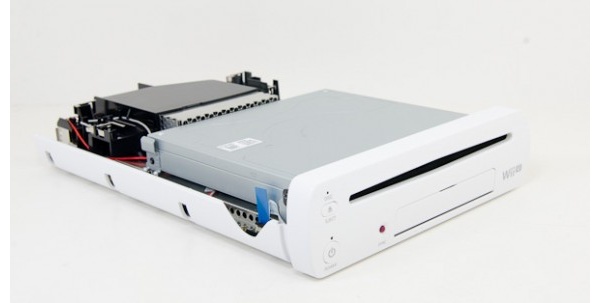
Just hours after launch, AnandTech has given the Nintendo Wii U a proper teardown.
First off, the site says the hardware seems repair-friendly, with an easy to open chassis. That being said, there are a few delicate connections that are soldered together, however.
Under the hood, the Wii U has 2GB of DDR3-1600 RAM, doubling the peak bandwidth of its predecessor, at 12.8GB/s.
The Wii U optical drive, as reported earlier this year, is a proprietary format for game storage, but matching low-end Blu-ray storage at 25GB per disc. The site says "max sequential read speeds are pretty high compared to the current gen consoles at 22MB/s."
There is a multicore PowerPC processor and a large GPU with supposedly high amounts of eDRAM.
Moving to the tablet-esque GamePad, the site reports there is a dedicated Miracast 802.11n wireless controller for streaming content. A second wireless controller controls Wi-Fi, etc., leaving the dedicated controller for the GamePad; leading to lag of under 1/60 of a second. The tablet has a tiny 1500 mAh battery, leading to just 3-4 hours of usability.
Under the hood, the Wii U has 2GB of DDR3-1600 RAM, doubling the peak bandwidth of its predecessor, at 12.8GB/s.
The Wii U optical drive, as reported earlier this year, is a proprietary format for game storage, but matching low-end Blu-ray storage at 25GB per disc. The site says "max sequential read speeds are pretty high compared to the current gen consoles at 22MB/s."
There is a multicore PowerPC processor and a large GPU with supposedly high amounts of eDRAM.
Moving to the tablet-esque GamePad, the site reports there is a dedicated Miracast 802.11n wireless controller for streaming content. A second wireless controller controls Wi-Fi, etc., leaving the dedicated controller for the GamePad; leading to lag of under 1/60 of a second. The tablet has a tiny 1500 mAh battery, leading to just 3-4 hours of usability.













